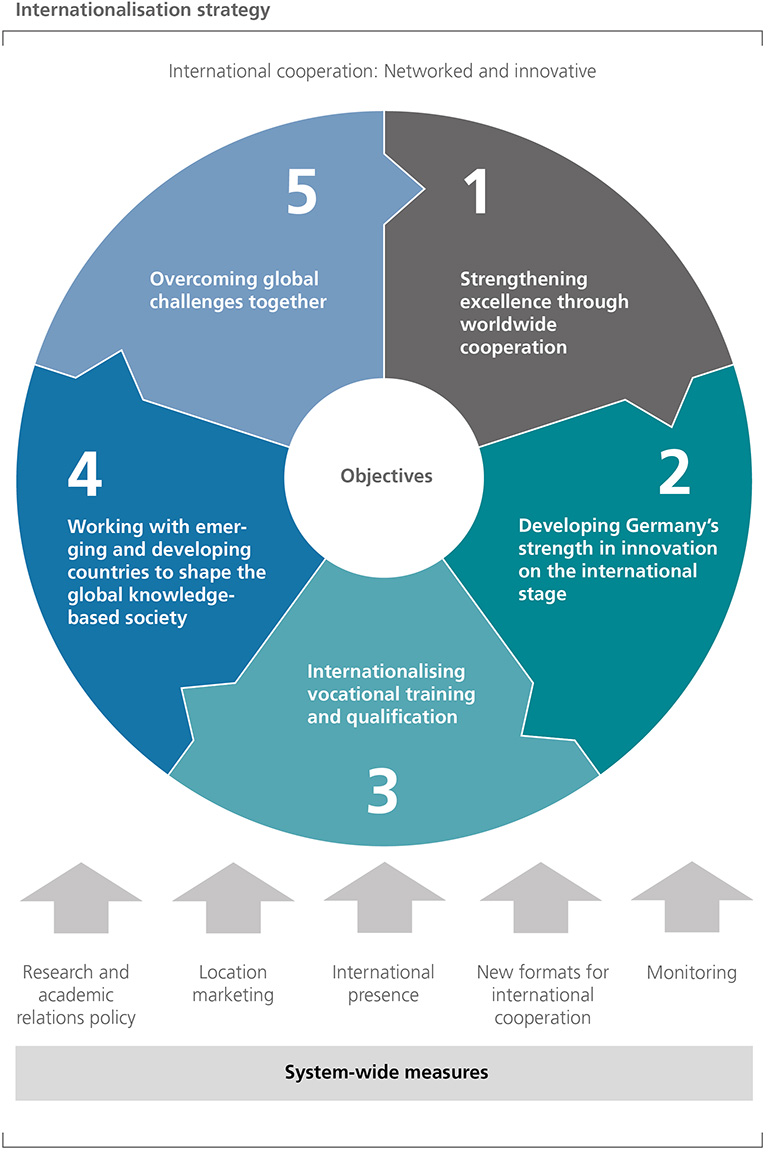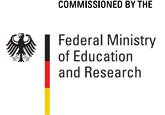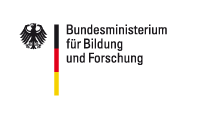When Germany approved its first internationalisation strategy in 2008, it was a global pioneer. Since then, new trends and challenges have emerged, e.g. the increasing digitalisation, the further development of the European Research Area and the growing importance of international cooperation in vocational training. An update of the internationalisation strategy was therefore required.
DLR Projektträger, the project management agency of the German Aerospace Center (DLR) rendered support to the BMBF as the leading ministry in the strategic revision of the internationalisation strategy. A special coordination group within the department of 'European and International Cooperation' of DLR Projektträger provided content as well as organisational support in managing the accompanying discussion process with the research and intermediary organisations.
With the revised internationalisation strategy, which was approved on 1 February 2017, the Federal Government uses the potential of international cooperation in education, science and research to ensure quality of life, health and prosperity in the global age. It addresses new developments while maintaining proven approaches.

The “Strategy for the Internationalization of Education, Science and Research“ of the Federal Government of Germany centres five key objectives.
© International Bureau
The guiding theme of the revised internationalisation strategy is 'International Cooperation: Connected and Innovative'. In practical terms, this means that international cooperation will be orientated effectively, efficiently and focused on achieving strategic objectives. Synergies between the various activities of the stakeholders from science, industry and politics will be used to achieve maximum impact.
The strategy centres on the following five key objectives:
- Strengthening excellence through global cooperation:
Scientific excellence needs the exchange and competition between the world’s best. The Federal Government will further consolidate Germany’s position as an internationally attractive location for study and research, promote mobility and actively work towards a strong European Research Area. - Developing Germany’s innovation capacity internationally:
For Germany as a high-tech location it is crucial to be fully integrated into global knowledge flows and value chains. The Federal Government will continue to promote this networking - in particular of small and medium-sized enterprises (SMEs) – and will shape the best possible framework conditions for cooperation, e.g. regarding intellectual property rights. - Expanding vocational training and qualification internationally:
Through international cooperation in vocational training, Germany will not only support sustainable development in the neighbouring countries but also facilitate international activities of German enterprises. The Federal Government will take steps to expand cooperation with industrialised countries and emerging economies, increase the mobility of apprentices and further work towards an easier recognition of qualifications. - Working with emerging economies and developing countries in shaping the global knowledge society:
As aspiring science nations, many emerging economies and developing countries are becoming increasingly relevant as partners for Germany. The Federal Government intends to further expand its cooperation with these countries. In this context, digitalisation offers important opportunities for facilitating an easy access to knowledge. - Overcoming global challenges together:
Global challenges such as climate change, health and food security do not stop at national borders. They can only be met by transnational efforts. The Federal Government will work towards a better cooperation between the relevant stakeholders at European and international level.
Another focus of the internationalisation strategy is on new cross-cutting actions in the area of foreign science policy and international cooperation: The Federal Government will be using the potential of scientific exchange even more to keep communication channels open in tense political situations and also to create scientific and academic perspectives in regions of conflict










